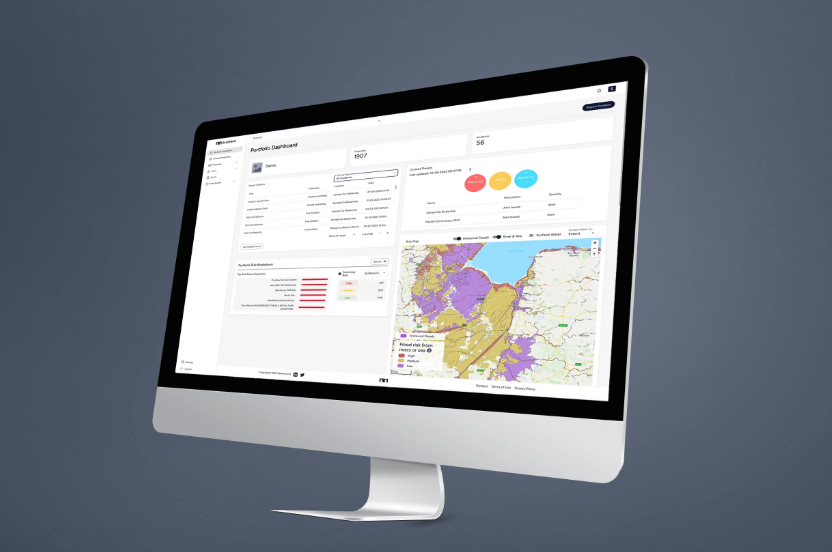
As the planet continues to heat up, catastrophic events including wildfires, storms and floods will become more frequent and severe – and so will the costs for recovery.
SmartResilience is a start-up innovator in climate adaptation that aims to provide a climate analytics platform which empowers professionals to build organisational resilience in the face of climate change.
Using extensive historic datasets and forecasting models, SmartResilience maps current and future risks for a variety of climate change scenarios. This facilitates the development of informed short and long-term business continuity strategies to ensure each organisation is better prepared for climate risks.
Recognising the primacy of environmental data and the constant refinement of climate model outputs, Smart Resilience contracted Environmental Insight Partners to provide hands-on technical consultancy to provide the team with state-of-the-art modelling advice across a range of climatic hazards.
Process
The project was funded by Innovate UK through its Business Growth initiative. The engagement required alternating phases of assessing the latest climate science modelling techniques and training. We delivered these via weekly seminars where we worked collaboratively through our findings and set priorities for the next discovery phase.
Solution
The consultancy was delivered via a combination of literature reviews and worked examples using Python notebooks. We covered data sources suitable for quantifying risks associated with high winds, floods and droughts.
A particular challenge is that even the most advanced climate models struggle to replicate the physical processes which govern the extremes. We recommended a hybrid approach which combines the best of dynamic and statistical simulations.
This was particularly important in the case of tropical cyclones where the lack of observational data make it difficult to assess even the current level of risk. Here we recommended the use of the synthetic tropical cyclone tracks (re-sampled from observations) and then conditioned on climate model output.
Return Level Estimation – a measure indicating the magnitude of an extreme event expected to occur once in a given time period (e.g., a "100-year storm") – is a critical component of any climate risk assessment framework. We provided a reference implementation of the standard method (Peak-over-Threshold) complete with a suite of diagnostic tools to demonstrate the correctness of the approach.
A universally accepted definition of drought remains elusive. We undertook a comprehensive review covering over 50 drought indices (including in situ and satellite-based methods) and provided implementation details for the widely used Standard Precipitation Index (SPI) and Standard Precipitation Evapotranspiration Index (SPEI) measures.
Impact
Following the project, SmartResiliance can be confident that their analyses are based on the best available data and practice. They have sight of the art-of-the-possible and are well placed to understand and incorporate new data sources into their platform (such as very high-resolution climate models) as these come on stream.
Testimonial
Harish Pesala, Director, SmartResilience
“At SmartResilience, we wanted to leverage the best possible expertise in modelling climate risk and the Environmental Insight Partners team were great to work with. They were really knowledgeable about climate data and were super flexible in providing the appropriate technical advice to meet our requirements.”
Tell us about your data challenge
Other project stories
Reducing energy costs in cement manufacture
Read more…Improving environmental impact assessments using knowledge graphs
Read more…Analysing climate impacts on infrastructure
Read more…